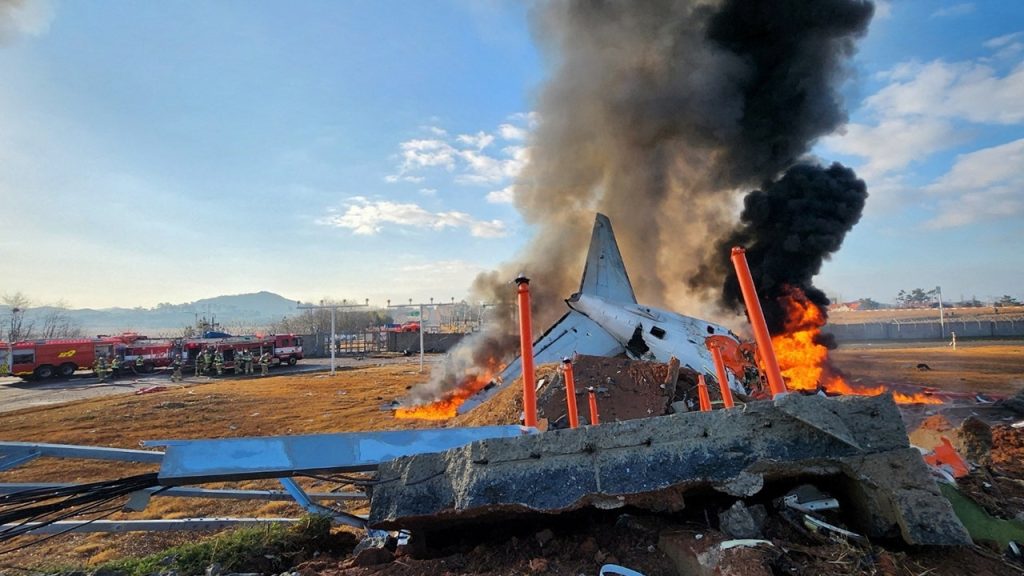The tranquil Sunday morning at Muan International Airport, South Korea, was shattered by the horrifying spectacle of a Jeju Air Boeing 737-800 crashing mere moments before its scheduled landing. The aircraft, returning from Bangkok, Thailand, with 181 souls on board, veered off the runway, colliding with a concrete perimeter fence. The impact triggered a series of explosions, engulfing the plane in flames and leaving a scene of devastation. The tragic incident claimed the lives of at least 176 passengers and crew, leaving only two crew members rescued with non-life-threatening injuries and three individuals still unaccounted for.
Eyewitness accounts paint a chilling picture of the unfolding disaster. Yoo Jae-yong, observing from a nearby rental house, reported seeing a spark on the plane’s right wing before the crash, followed by a deafening explosion. Another witness, Cho, walking approximately 2.8 miles from the airport, described seeing a flash of light as the plane descended, followed by a loud bang, billowing smoke, and subsequent explosions. These accounts suggest a sudden and catastrophic event occurring just as the plane attempted its final approach.
A recurring theme in the witness testimonies is the plane’s difficulty in landing. Kim Yong-cheol, a 70-year-old witness, stated that the plane initially failed to land, circling around for a second attempt before the crash. He also reported hearing a metallic scraping sound twice, approximately five minutes before the impact, adding further weight to the theory of a potential mechanical malfunction. His observation of the plane ascending after the failed first landing, followed by the loud explosion and black smoke, correlates with other accounts, suggesting a desperate attempt by the pilots to regain control.
Adding a new dimension to the emerging narrative, another witness, Jung, who was fishing nearby, reported seeing the plane collide with a flock of birds shortly before the crash. He recounted observing flames emanating from the right engine after hearing two or three bangs that sounded like birds being ingested into the engine. This testimony introduces the possibility of a bird strike as a contributing factor to the crash, potentially explaining the observed engine fire and subsequent difficulties in landing.
While the exact cause of the crash remains under investigation, authorities are exploring the possibility of landing gear failure, potentially stemming from the reported bird strike. Videos of the incident clearly show the plane attempting to land with its landing gear retracted, adding credence to this theory. The investigation will undoubtedly focus on piecing together the eyewitness accounts, the physical evidence at the crash site, and the plane’s maintenance records to determine the precise chain of events leading to this tragedy.
The aftermath of the crash has seen an outpouring of grief and condolences. Jeju Air has issued a statement expressing its deep apologies and commitment to managing the aftermath of the accident. Boeing, the manufacturer of the 737-800, has also expressed condolences and offered its support to Jeju Air in the ongoing investigation. As the investigation continues, the focus will remain on determining the root cause of the crash to prevent similar tragedies in the future, while also providing closure and support to the families and loved ones of the victims.

